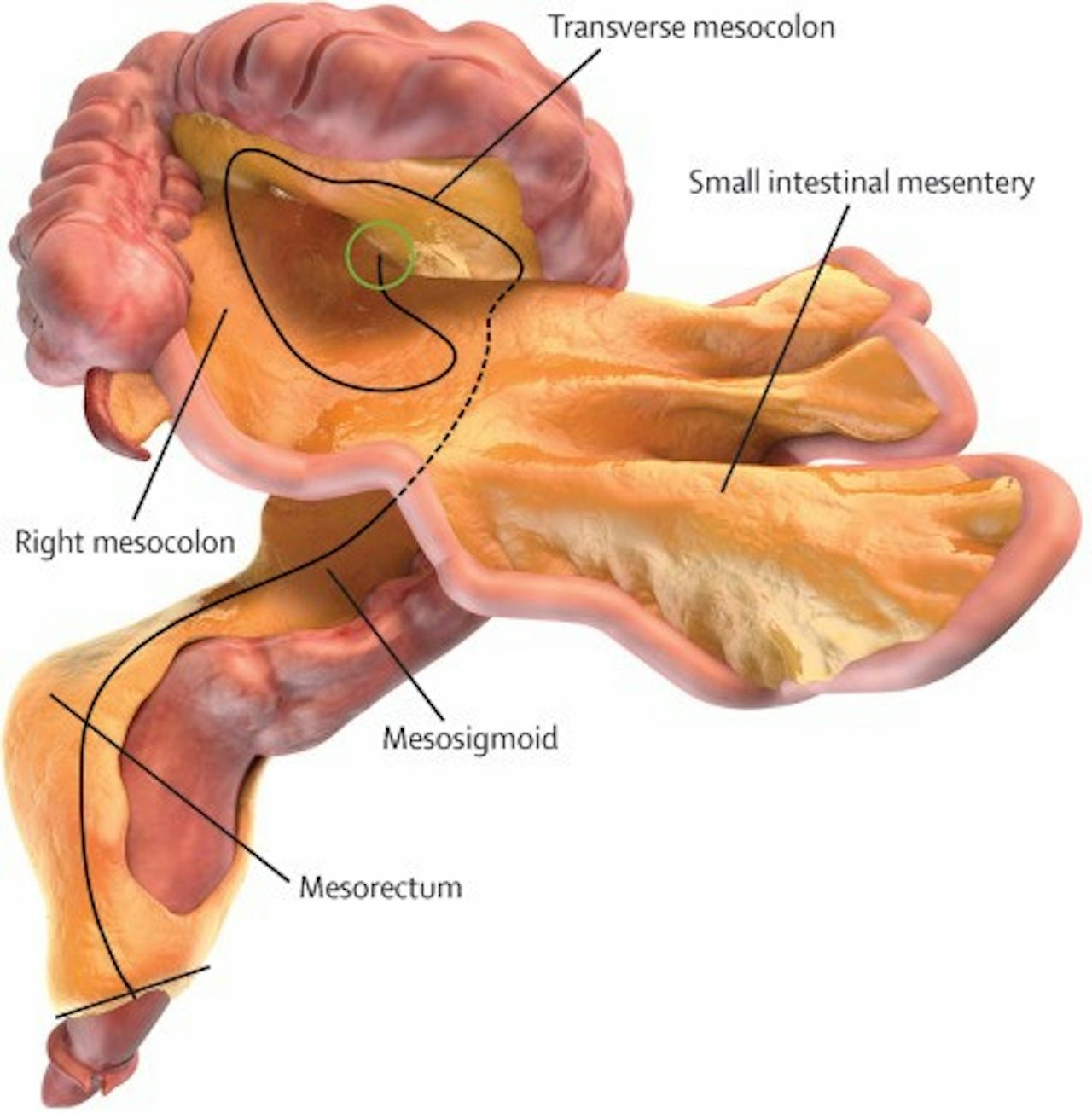Earlier this week, the news was awash in stories that a new organ had been discovered. Yes, a new organ... of the human body. It’s called the mesentery, and it’s a fold of tissues that attach the intestines to the wall of your abdomen. One of the earliest known depictions of this mysterious piece of our innards was done by Leonardo da Vinci, so while its existence has long been known, new documentation, just published in the medical journal Lancet: Gastroenterology and Hepatology, has re-classified it from “fold of tissues” to “organ.” Besides connecting things together inside your body, the mesentery is also responsible for transporting blood and lymphatic fluid between the intestine and the rest of the body.
The research, led by study author Dr. J. Calvin Coffey of the University of Limerick, establishes the mesentery as a contiguous organ. It builds off of oft-overlooked work done in the 1870s by Carl Toldt, who, according to the new paper, identified it as being “separate” from the abdominal wall, though he stopped short of actually calling it contiguous. Not until recently were Toldt’s findings about the mesentery picked up and examined anew, resulting in the situation we’re now in: with a new organ we didn’t really learn much about in school. A new edition of Gray’s Anatomy, the standard English-language textbook on human anatomy first published in 1858, will include the designation of the mesentery as its own organ, prompted by Coffey’s work.
But how does an organ formally get to be called an organ anyway? What’s the process like? Lancet is a highly respected medical journal, and the findings of this paper — titled “The mesentery: structure, function, and role in disease” — are certainly trustworthy. But it’s not every day that we get to declare new body parts organs. So how does that actually occur?
Dr. Coffey, who has been studying the mesentery since 2008, is not sure himself. “We have been fully focused,” he says, “on the research side of things and haven’t had a chance to address this very important question.” There isn’t, as far as I’ve been able to tell, a body or group that has been fully empowered to declare or not declare something an organ or not. Dr. Coffey seemed uncertain as well. In February, a book, “Mesenteric Principles of Gastrointestinal Surgery,” will also be published by Dr. Coffey and his team, which should go a long way in convincing others that the mesentery is, indeed, an organ.
Dr. Coffey notes that, in relative terms at least, our understanding of the mesentery is just beginning. Though the human body has been studied in depth for centuries, every year brings new understandings about how it is constructed and how it operates. He’s also not even sure of the last time we “discovered” a new organ: “I have been focussed on the mesentery and its science,” he said. The mesentery, long acknowledged as existing, has now been through a peer revision process and is on the path to being given its full due, not as several structures but as one organ. “There will always be new ways of looking at things, and new questions to answer as a result,” Coffey said.
Ultimately, the research is likely to further our understanding of abdominal and digestive diseases. But for now, just remember: Your body has 79 organs, not 78.


